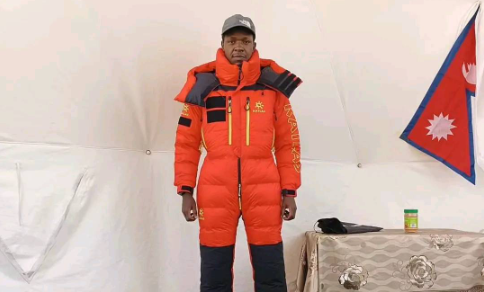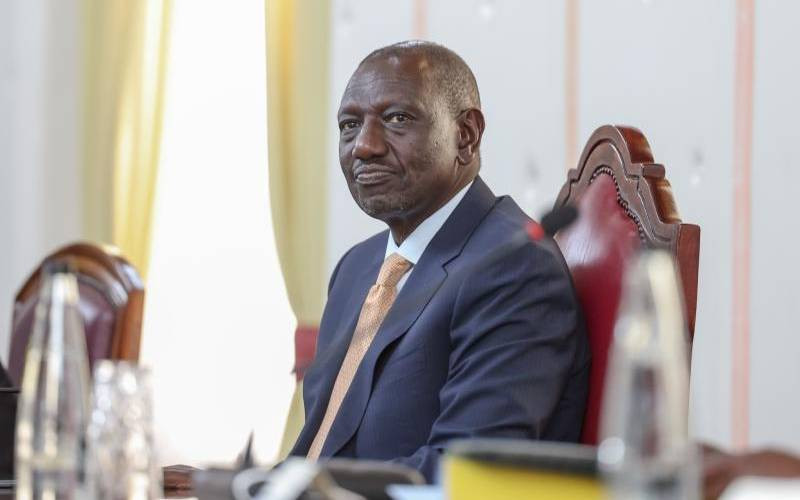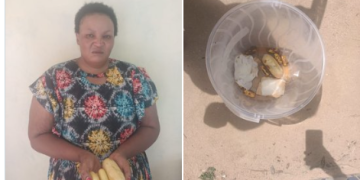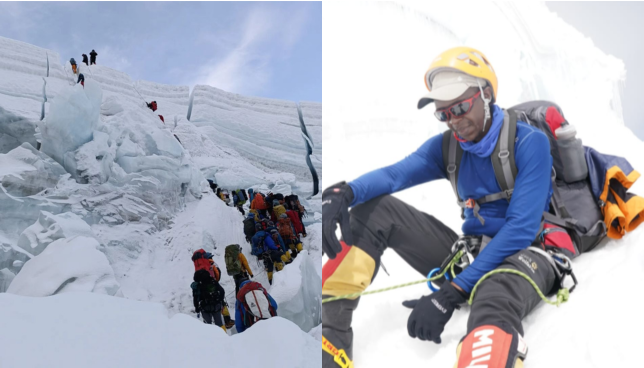According to his family, Joshua Cheruiyot Kirui, a Kenyan climber who lost his life on Mount Everest on May 22, will always be buried there.
On Wednesday, the family referred to their current circumstances as “painful” and mentioned the danger of having to retrieve the body.
“Following the death of Joshua Cheruiyot Kirui on Mount Everest on May 22, 2024, the family has taken the difficult decision to let his body remain on Mt Everest. This decision was taken after extensive consultation and careful consideration of all the circumstances,” the family said in a statement.
“Cheruiyot fell into a crevasse 48 metres from the summit (8,848 metres) and retrieving his body from that height would be risky for the rescue team and the family does not wish to endanger any lives.”
The family added: “Cheruiyot had a deep love for the mountains and they loved him in return. We find solace in knowing that he is resting in his happy place.”
It is estimated that nearly 200 bodies of the 330 climbers who died on the world’s highest mountain remain on The Everest.
It costs about Sh9 million to retrieve a body, as it takes about eight people to scale up to carry it, and most families who lose their loved ones prefer to leave them there.
Bringing the body down is a risky and costly affair, depending on a number of factors, according to one of the late Kirui’s close hiking friends, Limo Kipkemoi.
Mr Kirui’s family added that they appreciated the love and condolences they had received from relatives, friends and the community, including the KCB Group where Kirui worked.
“We know that our son was truly loved and we thank Seven Summit Treks for their support, information and guidance during this time. We also pray for the family of Nawang Sherpa who is still missing. May they find peace,” the family said.
A memorial service for Mr Kirui will be held in Nairobi and Chepterit village in Nandi County, details of which will be announced in due course.

On April 18, Mr Kirui posted on his social media pages that he was on a mission to climb Mt Everest in the Himalayas without supplemental oxygen.
Medically, he was armed with nifedipine, and he revealed in his plan that this was because he was susceptible to High Altitude Pulmonary Edema (HAPE), a serious high altitude illness that affects the lungs and causes them to fill with fluid, which could lead to a medical emergency.
He was a mountaineering enthusiast, an avid runner, a banker and a writer, and many who knew him described him as a man of few words.

































![Meet Simon Kabu’s beautiful grownup daughter [Photos]](https://mkenyaleo.co.ke/wp-content/uploads/2023/01/aqer.png)





